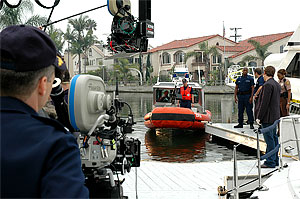One of the most fun parts about my job is answering people's genetics questions at our Understanding Genetics website. We get around 200 questions each month from all over the world and they definitely keep me on my toes.
They also give me a feel for what is going on with science in popular culture. I can tell this by looking at Google Analytics data and seeing which of our previous answers has had an upsurge in visits. (We post around one new answer online per week.)
For example, whenever PBS airs a show on how a mutation called CCR5-delta 32 may have made people resistant to the plague, I get an uptick in the hits on the answer that deals with that topic. When House (a show on Fox) had a character say that of course someone was adopted because he had a cleft chin and his parents didn't, I got an uptick on the answer that dealt with that. (The answer is that a child can have a cleft chin even if his or her parents don't.)
In the last couple of weeks, there has been a surge in our answers about chimeras. Usually this means that somewhere in the world, a certain episode of CSI is being shown.
Chimeras start out as fraternal twins that fuse together at a very early stage. What this means is that chimeras have two sets of DNA. Some of their cells have the DNA from one twin and the rest of their cells have DNA from the other twin.
